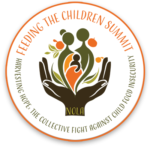FAQ: Addressing Food Insecurity
in New Orleans
Food insecurity is being without reliable access to sufficient affordable, nutritious food. It affects individuals and families who cannot regularly meet their dietary needs.
In New Orleans, one in three children are food insecure. This means that a significant portion of our community struggles to access enough nutritious food.
Key organizations include Total Community Action, Second Harvest Food Bank, No Kid Hungry, United Way of Southeast Louisiana, and various local churches and community groups.
The New Orleans Citizens Council unites community leaders and organizations to preserve democratic rights and address local issues like food insecurity. They work to mobilize resources, raise awareness, and implement solutions.
Recently, the state government rejected $71 million in federal funds intended for a food program, citing the cost of implementation. This decision has significantly impacted local efforts to provide food assistance.
Local communities are organizing food distribution networks, expanding existing programs, and collaborating with various organizations to ensure that families have access to nutritious meals.
Food insecurity negatively impacts educational outcomes. Hungry children often struggle to concentrate, have lower energy levels, and perform poorly in school, leading to a cycle of poverty and reduced opportunities.
Individuals can volunteer with local organizations, donate to food banks, participate in community food drives, and advocate for policies that support food security.
The long-term vision includes creating a sustainable food distribution network, ensuring every neighborhood has access to nutritious meals, and working towards systemic changes to address the root causes of food insecurity.
Community involvement is crucial because it leverages local knowledge, resources, and support networks to address food insecurity effectively. A united community can mobilize quickly, implement solutions efficiently, and create a lasting impact.
